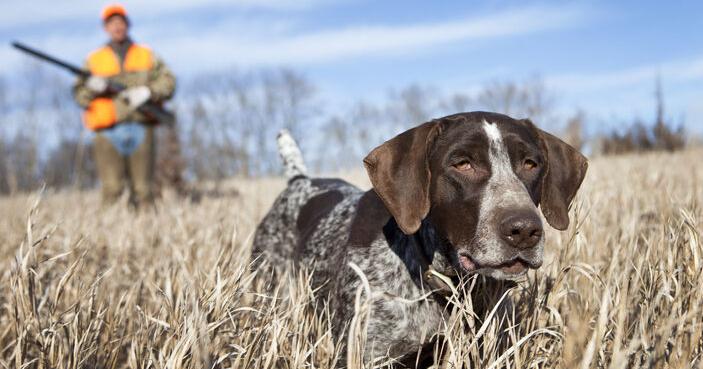
Recent debates in the Pennsylvania state House and Senate Game and Fisheries Committees have brought to light an ongoing issue regarding current crop damage mitigation legislation being considered by both committees.
Part of the discussion has been focused on one question: Why is the Pennsylvania Farm Bureau advocating for a law that allows unarmed hunters to retrieve dogs from private property, given its longstanding position favoring stiffer trespassing penalties?
The answer is straightforward: Pennsylvania law already permits unarmed individuals to enter private property solely to retrieve hunting dogs under both the Game and Crime Codes.
Contrary to misconceptions in Harrisburg, the proposed amendments to the crop damage mitigation package do not introduce a new exemption for hunters using dogs. This exemption is already in place.
A June 7 column in Pennsylvania Outdoor News erroneously suggested that the Farm Bureau is pushing for stronger trespassing penalties that are selectively applied. The column attributed the creation of an amendment allowing “unarmed individuals” to enter private property to retrieve a dog to Farm Bureau. It also claimed that the dog-retrieval language in the Sunday hunting bill imposes mandates on private property owners regarding access to their land.
That is incorrect. Farm Bureau’s proposed amendments aim to narrow the existing “hunting dog” exemption. The amendments would require hunters to attempt to contact landowners if the property is fenced or marked as an agricultural biosecure area. The goal is to enhance penalties to protect landowners’ rights and prevent hunters from entering private property, thereby avoiding dangerous situations for both livestock and hunters.
Pennsylvania Farm Bureau consistently encourages its members to practice robust biosecurity measures to protect herd or flock health. Unauthorized entry into biosecure areas by individuals unfamiliar with agriculture can pose significant risks to hunters and livestock.
Given current outbreaks of Highly Pathogenic Avian Influenza affecting birds and cattle, the potential for disease spread is high. An avian influenza outbreak requires the depopulation of affected flocks. In some cases, depending on the size of the farm, this could result in the loss of thousands of birds, leading to substantial financial losses for farmers.
HPAI also impacts dairy cattle, significantly reducing milk production, and milk from HPAI-positive cattle must be destroyed to prevent contaminated milk from reaching the commercial milk supply. Quarantine measures for infected cows add further financial and logistical burdens on Pennsylvania farmers.
Requiring hunters to seek landowner permission before entering their land also aims to prevent unsafe situations that could result in serious injury or death. Fences serve a purpose, such as containing livestock or keeping wildlife and individuals out. Uninformed entry into fenced areas can lead to hazardous encounters with bulls or other livestock, posing serious liability issues for farmers.
This amendment advocates for common sense: Respecting a farmer’s land and preventing avoidable tragedies. It underscores the importance of landowner consent and aims to balance the rights and responsibilities of both hunters and farmers.
Pennsylvania Farm Bureau remains committed to protecting the interests and safety of its members, advocating for stronger trespassing laws that reflect the realities and challenges faced by farmers.
This post was originally published on this site be sure to check out more of their content.












































